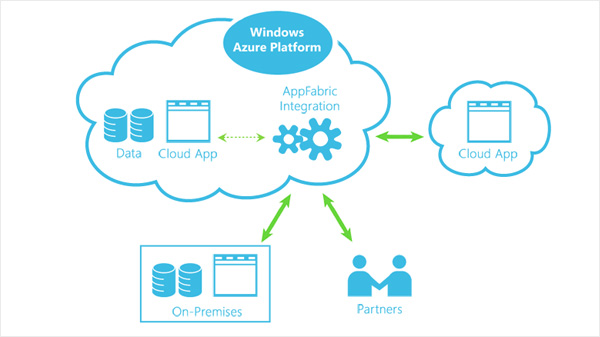Microsoft Azure
Microsoft Azure is an ever-expanding set of cloud services to help your organisation meet your business challenges. It is the freedom to build, manage and deploy applications on a massive, global network using your favorite tools and frameworks.
Microsoft Azure, formerly known as Windows Azure, is Microsoft’s public cloud computing platform. It provides a range of cloud services, including those for compute, analytics, storage and networking. Users can pick and choose from these services to develop and scale new applications, or run existing applications, in the public cloud.

Allscripts is a leading healthcare software manufacturer, serving physician practices, hospitals, health plans, and Big Pharma. To transform its applications frequently and host them securely and reliably, Allscripts has started to use Microsoft Azure. In just three weeks, the company lifted and shifted dozens of acquired applications running on 1,000 virtual machines to Azure. Allscripts also develops software in Azure and realizes dramatic time-to-market gains and savings by using the Azure platform as a service offering.

By collaborating with payers, health plans and programs, pharmaceutical and life sciences companies, and employers, Allscripts has a panoramic view of the care process and uses that perspective to develop innovative tools that lower costs, improve care, and enhance both patient and provider satisfaction.
Writing and delivering software that fulfills a wide range of client needs while also protecting confidential patient data takes great skill—both in creating new functionality and in deploying and running enterprise-grade software applications reliably and securely.
Everyone thinks of Azure as being a Microsoft product–focused cloud, but when you look at the long list of operating systems and networking appliances supported by Azure, many are Linux-based.
Azure products and services :
As of July 2018, Microsoft categorizes Azure cloud services into 18 main product types:
Compute – These services enable a user to deploy and manage virtual machines (VMs), containers and batch processing, as well as support remote application access.
Web – These services support the development and deployment of web applications, and also offer features for search, content delivery, application programming interface (API) management, notification and reporting.
Data storage – This category of services provides scalable cloud storage for structured and unstructured data and also supports big data projects, persistent storage (for containers) and archival storage.
Analytics – These services provide distributed analytics and storage, as well as features for real-time analytics, big data analytics, data lakes, machine learning, business intelligence (BI), internet of things (IoT) data streams and data warehousing.
Networking – This group includes virtual networks, dedicated connections and gateways, as well as services for traffic management and diagnostics, load balancing, domain name system (DNS) hosting, and network protection against distributed denial-of-service (DDoS) attacks. Media and content delivery network (CDN) — These services include on-demand streaming, digital rights protection, encoding and media playback and indexing.
Hybrid integration — These are services for server backup, site recovery and connecting private and public clouds. Identity and access management (IAM) — These offerings ensure only authorized users can access Azure services, and help protect encryption keys and other sensitive information in the cloud. Services include support for Azure Active Directory and multifactor authentication (MFA). Internet of things — These services help users capture, monitor and analyze IoT data from sensors and other devices. Services include notifications, analytics, monitoring and support for coding and execution.



